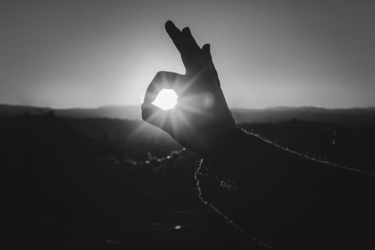Health Longevity approaches
“You don’t grow old. When you cease to grow, you are old.”
7 min read
'Longevity' is a buzz-word in health at the moment, but there is a fine line between strategies for longevity versus strategies for health. Health longevity means living well for as long as possible and avoiding age-related diseases until the very last years. What differentiates longevity 'hacks' from the latest health tips or ‘miracle pill’ is the routine, safety and long-term consistency of doing them. It is a good thing!
A European professor Michel Poulain did research in 2001 on factors related to exceptional population longevity based on data he obtained in Sardinia Italy. Whilst these BlueZone centurians have inherited the right gene variants related to ageing, he said longevity is mostly related to epigenetics (80%? suggested by various research). He noted that living in the past is not the solution, nor moving to a BlueZone, but there are lessons learnt by these long-lived populations. He said that it is important not to impose a healthier lifestyle but to create conditions and opportunities that make individual choices for a healthier life easier.
The following factors are what I wrote down from a public lecture from him that I attended in 2018; these factors contributed to the long healthy lives in the Sardinia BlueZone:
Simple life. BlueZone pillar: Relax, avoid stress, and ensure enough quality sleep.
What you eat is locally grown and with minimal processed food, even made at home (exceptions in Sardinia: coffee & nutella). Stop eating when stomach is 80% full (ie. calorie restriction). No particular food could explain longevity. BlueZone pillar: Eat wisely.
Physical activity even into retirement (no such thing as a Sardinian retiring). High energy expenditure, and a daily life in agreement with nature , following the sun hours. BlueZone pillar: Move naturally.
Strong religiousity. Not a religion where you ask lots of questions but very basic and optimistic. BlueZone pillar: Purpose in life and religiousity.
Strong family links. Support of community and family, especially in old age, and keeping old people integrated in society. BlueZone pillars: Family and close relationships are essential; Strong community support based on conviviality and mutual respect.
Tackling disease early and effectively before it becomes a problem.
Avoiding accidents leading to early death.
Good conditions and nutrition in early life, strongly impacting epigenetics.
He also mentioned that Environmental factors are important: Water quality, air quality, non GMO, low stress, low noise.
It appears that most of these factors relate to living in harmony with our own natural metabolic and healing processes as much as possible. See the next section for longevity tricks & tips as achieving this is not as simple in much of our modern world! "Modern society is a society that is crowded, immunologically-suppressed, nutritionally-depleted, emotionally-stressed, physiologically-challenged, microbiologically-imbalanced, and environmentally-polluted."


Below is a list of 12 health approaches that I try to incorporate into my lifestyle in order to 'hack' a long healthspan.
Note: please research and/or consult a practitioner before trying.
1) Intermittent fasting for two reasons: Fasting supports autophagy which is the cellular repair process; and fasting should bring calorie restriction, which is similarly associated with longevity.
- Eat within a 8 hour period for most days, such that the body is fasting is 16 hours per day. This 16:8 method is the most common intermittent fast.
- Alternative: as a minimum avoid food for the first hour of the day and and the last 2-3 hours of the day prior to bedtime; and don't over-eat.
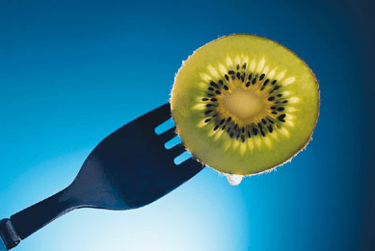

2) Regular exercise. Longevity doctors have recommended both hypoxic exercise and building of skeletal muscle.
- Exercise 3x each week where you are losing breath for 10 minutes.
- Insert weekly Resistance training to build muscle.
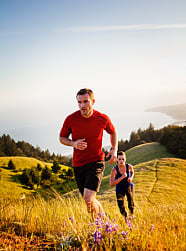

3) Low blood sugar. Low dietary sugar (especially glucose) and avoidance of glucose spikes/crashes are associated with longevity. Poor glycaemic control contributes to the common chronic diseases.
- When eating sugary things, have it at the end of a meal. Try to avoid snacking on sweets, sugary drinks (including fruit juice) and processed carbohydrates in between meals; choose a less sugary/refined alternative to snack on.
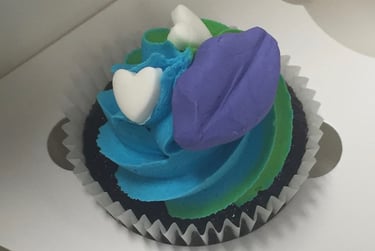

4) Circadian rhythm, which is the body’s mechanism for anticipating when to wake up and go to sleep. Proper day night signaling from full spectrum light from the sun (even if it is cloudy or rainy) is important for wakefulness throughout the day and drowsiness at night to glide into sleep.
- Seek light in the morning eg. within the first hour of waking up, preferably within 15 minutes. In winter, wait til after sunrise. Exposing your eyes to bright light first thing in the morning triggers the release of cortisol and suppress melatonin. Eg. walk the dog, drink coffee on the balcony or near a window. Winter alternative: use an electric sun lamp for 30 minutes (light therapy).
- Try to seek light during sunset, particularly when the light is changing from blue to red. eg. take the trash out.
- Avoid bright lights at night. From ~10pm, dim the room’s artificial lighting to the level that is necessary, and stop using your smartphone or computer (unless with blue blockers).
- Other times to seek sunlight: For vitamin D production, midday is optimal for this.


5) Practice early preventative healthcare and without exceeding your budget.
- Reach out to the right practitioners to tackle the root cause; and acknowledge you have the most insight about your own body - don't follow blindly the protocols of any one single practitioner. Nuisance symptoms are a sign that something is wrong and if left untreated progresses, and you don’t need to settle for second-rate health. It is our body’s intention to heal when given the right conditions. This applies to all of physical, emotional, and mental health.
- “In order to thrive in life, at all times we need a mentor, co-conspirator or partner, and a student to teach.” Get the support, inspiration and methods by a coach or mentor. Remember your feelings of motivation and their positive approach - and how it worked! Also, share your goals with someone to keep you accountable, as it can be hard work to make lifestyle adjustments or take on prescribed treatments..
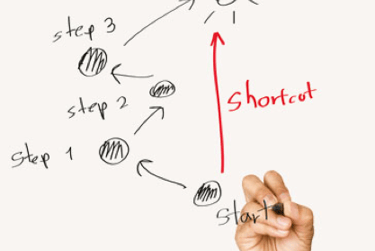

6) Nature as medicine. Nature can give vitamins & minerals (literally!) as well as release emotional baggage from the week. Interesting fact: colour psychology shows that green has a calming effect on the mind and body.
- Immersion activities at least every week in forest, seashore, beach, parks, riverside, etc.
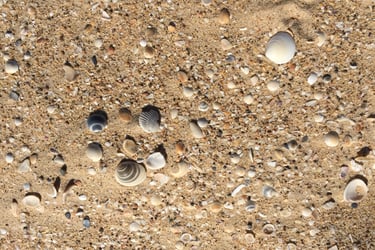

7) Laughter every day. Fake laugh if it’s not naturally coming, then it flows to become real!
- Dare of the day: try Laughter Yoga.
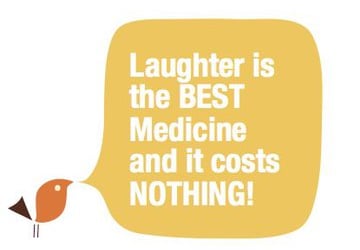

8) Social connectivity is highly correlated with health – and it is more difficult as people in society have become more isolated.
- Organise a regular “Block Party”, a type of community gathering in your neighbourhood, hobby group (even online), or workplace. If you’re introverted, encourage someone else to organise it!


9) Nutrition additions. The standard western diet tends to be calorie-rich and nutrient-poor, and food quality may be lacking (eg. poor soil conditions). Generally speaking, the Mediterranean diet is the best guideline - Okinawan diet also. Organic isn’t a necessity but nutrient density is.
For example,
- Design a meal every day that is nutritious. For example, a colourful plate or a good quality meat or fish. The coloured vegetables are composed of different nutrients but are also “stress plants” with polyphenols (antioxidants and anti-inflammatories).
- Add a superfood daily eg. raw leafy greens, bone broth, probiotic like kefir or kombucha.
- Consider a daily health ‘tonic’ eg. apple cider vinegar, freshly squeezed vegetable juice (eg. carrot, or celery, or cabbage with apple, depending on your need). Consider a supplement.
- Of course, hydration with pure water is important.
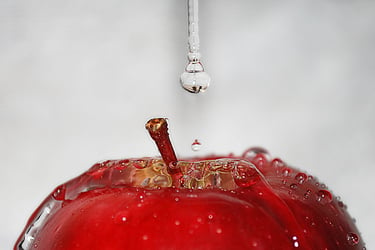

10) Detox regimes every so often, to remove toxins stored in our bodies from our polluted environment
For example,
- Infrared (IR) sauna – the most powerful though most expensive investment.
- Dietary regimes, including intermittent fasting (above) and many others. I’ve personally regained energy and youthfulness after these. This is where you need to do careful research and speak to practitioners. Interestingly, the major religions incorporate fasting practices.


11) Fountain of Youth? Who knows. There is research into supplements that support longevity. Note: This is where you need to do careful research and speak to practitioners.
Antioxidants that are said to reduce oxidative stress, associated with ageing:
- Glutathione precursors, as well as ALA (alpha lipoic acid) which increases formation of glutathione
- Resveratrol. Note: pinot noir wine has the most resveratrol
Key nutrients that naturally decline with age:
- Nitric oxide
- Coenzyme Q10
- NAD (nicotinamide adenine dinucleotide). Via the reduced form: NADH, which is a metabolically active form of vitamin B3 aka niacin. Or, precursors of NAD+: NMN (Nicotinamide mononucleotide) or NR (nicotinamide riboside, also a type of vitamin B3)
(Note: I am personally concerned about taking the same supplement every day for many years. I do periodical courses, change the supplement brand, etc)
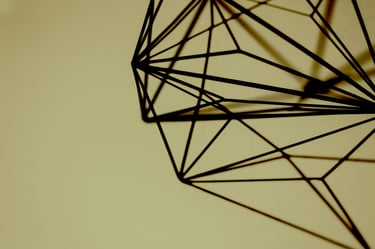

12) Ageing skin health
- Face Yoga daily exercises. There are phone app's and other support available.
- Skin creams - specialist products for face wrinkles and freckles, and cellulite
- Energy medical devices eg. microcurrent


Excluded from the list is the absence of toxic lifestyle factors ie. high consumptions of bad foods, alcohol, chemicals, stress etc.
